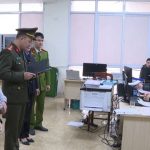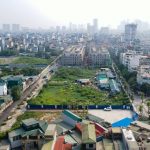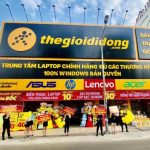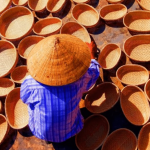The event was attended by a large number of delegates from the political sphere, diplomats, researchers, scholars, and Indian students.
Established in 1943, the Indian Council of World Affairs (ICWA) has been at the forefront of shaping India’s foreign policy vision for over seven decades, with numerous initiatives and ideas contributing positively to peace and cooperation in the region and worldwide.
The ICWA headquarters has also witnessed several significant historical events, notably the first Asian Relations Conference in 1947, which laid the foundation for the Non-Aligned Movement. The countries in this movement strongly supported Vietnam during its struggle for national liberation and unification.
A GREAT SOURCE OF INSPIRATION FOR VIETNAM
Speaking at the event, Prime Minister Pham Minh Chinh first expressed sincere gratitude on behalf of the Party, State, Government, and people of Vietnam for the heartfelt condolences offered by the Indian leaders and people to the Party, State, Government, people of Vietnam, and the family of the late Secretary General Nguyen Phu Trong, an extraordinary leader of Vietnam and a great, sincere, and open friend in the Vietnam-India relationship. This embodies the strong solidarity and profound friendship between the two countries and their people.
The Prime Minister shared that during this visit to India, he had witnessed and deeply felt the magnificent achievements of the Ganges civilization and India’s remarkable development.
Affirming India as one of the cradles of human civilization, the Prime Minister mentioned the immense heritages left by ancient Indians for humanity, such as the Taj Mahal, the concept of “zero” and decimal system, along with the two epic poems, Ramayana and Mahabharata.
Additionally, the philosophy of “Unity in Diversity” has shaped India’s identity, as exemplified by the remarkable statement of Jawaharlal Nehru: “India is a world in herself – a world of numerous and sharp contrasts, of vast varieties and extreme complexities.”
The Prime Minister also expressed his admiration for the remarkable achievement of a nation that has overcome a “destined moment” and “turned the corner to write new history.” India has become the world’s fifth-largest economy and is emerging as a significant “pole” in the evolving multipolar world.
Recalling Ho Chi Minh’s historical visit to India 66 years ago, the Vietnamese leader, the beloved father of the nation, and the cultural celebrity of the world, affirmed, “India is an independent and powerful country that has made valuable contributions to peace in Asia and the world,” and “India’s success in national construction is a great source of inspiration for Vietnam.”
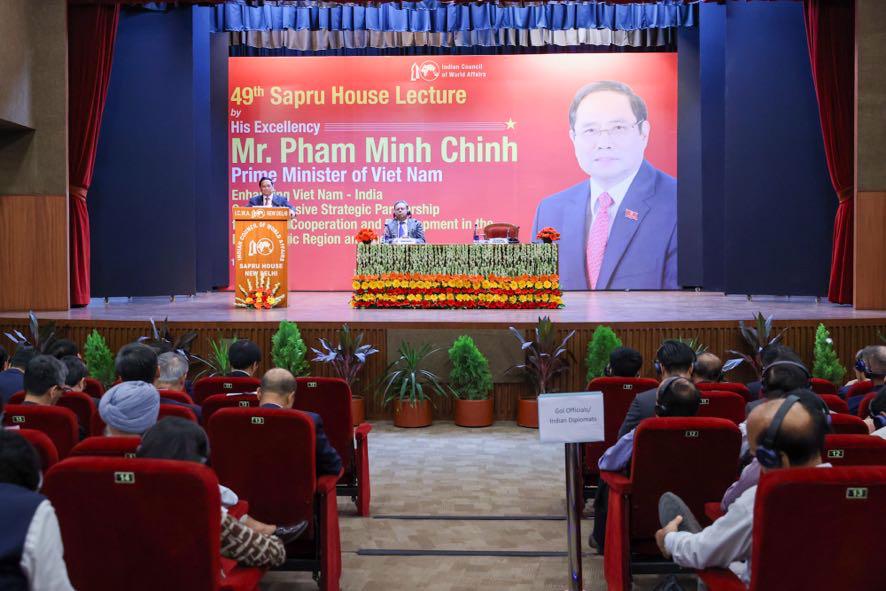
According to the Prime Minister, these statements remain valid and will forever be valuable. Today, India is playing an increasingly important role in peace, stability, and prosperity in the Indo-Pacific region and the world. It continues to be a strong source of inspiration for countries, including Vietnam, on their development path.
With this in mind, the Prime Minister dedicated a significant portion of his policy speech to sharing insights on three main topics: (1) The global and regional situation; (2) Vietnam’s policies, achievements, and development orientations; and (3) The vision for the Vietnam-India Comprehensive Strategic Partnership in the future.
VIETNAM AND INDIA NEED TO SHARE A COMMON VISION
The Prime Minister assessed that the current global situation is rapidly evolving, complex, and unpredictable, with unprecedented issues. While there is peace in general, there are wars in specific regions; there is détente in general, but tensions in specific areas; and stability in general, but conflicts in specific regions.
The Prime Minister pointed out six significant contradictions in today’s world: (i) Between war and peace; (ii) Between competition and cooperation; (iii) Between openness, integration, independence, and self-reliance; (iv) Between unity, connectivity, and separation, and delineation; (v) Between development and backwardness; and (vi) Between autonomy and dependence.
Along with these, the profound and complex changes in the global situation are also evident in four notable features: the high level of unpredictability and instability in the global security environment; the world economy entering a new development phase; the continued crucial role of multilateralism, yet facing serious challenges in its effectiveness; and the Indo-Pacific region facing significant risks and challenges from hotspots, local conflicts, and major power rivalries.
“These global issues require comprehensive and holistic thinking, demanding all countries and multilateral institutions, more than ever, to persist in dialogue and cooperation in a spirit of unity and diversity to find effective solutions that are people-centric, comprehensive, and global,” emphasized the Prime Minister.
In this context, the solidarity, cooperation, and friendship between Vietnam and India need to be continuously strengthened and developed, becoming a positive force contributing to peace, stability, cooperation, and development in the region and the globe.
As Comprehensive Strategic Partners, Vietnam and India should share a common vision of a peaceful, cooperative, and developing world that is multipolar and multi-centered, “united in diversity,” prioritizing dialogue and cooperation, and peaceful measures over the use of force and the threat of force. Both countries should uphold multilateralism and international solidarity, respect international law, and reject unilateralism and the law of the jungle. They should also advocate for an open and inclusive Indo-Pacific region, where no country, people, community, or individual is left behind.
FIVE IMPORTANT PROPOSALS BY THE PRIME MINISTER
According to the Prime Minister, Vietnam-India diplomatic relations have spanned over half a century, but the close connection between the two countries dates back more than 2,000 years, when Indian monks and traders brought Buddhism to Vietnam.
Throughout history, the friendship and cooperation between Vietnam and India have continuously developed comprehensively and substantively. India was one of Vietnam’s first three Strategic Partners in 2007, and the establishment of the Comprehensive Strategic Partnership framework in 2016 marked a historic milestone, providing a strong impetus for expanding and deepening the relationship between the two countries in various fields.
In the context of today’s rapidly changing and complex world, the Vietnamese Government leader believes it is essential to strongly promote the traditional friendship and solidarity between the two countries, fostering closer and more effective cooperation to achieve new strategic goals.
Based on this, during this visit, the two Prime Ministers agreed to adopt a Joint Statement on strengthening the Comprehensive Strategic Partnership with the direction of “Five More,” including: (1) Higher political-strategic trust; (2) Deeper defense-security cooperation; (3) More substantive and effective economic, trade, and investment cooperation; (4) More open and inclusive cooperation in science, technology, and innovation; and (5) More intimate cultural, tourism, and people-to-people exchanges.
To materialize this direction, Prime Minister Pham Minh Chinh proposed the following priorities:
First, consolidate and strengthen strategic trust, creating a solid foundation for elevating and deepening the bilateral relationship in the new phase. Prime Minister Modi has repeatedly emphasized that “trust itself is the foundation for development.” This trust should be maintained through regular high-level exchanges and contacts, enhanced defense and security cooperation, and effective implementation of high-level agreements and commitments in the spirit of “saying and doing,” and “taking action on commitments.”
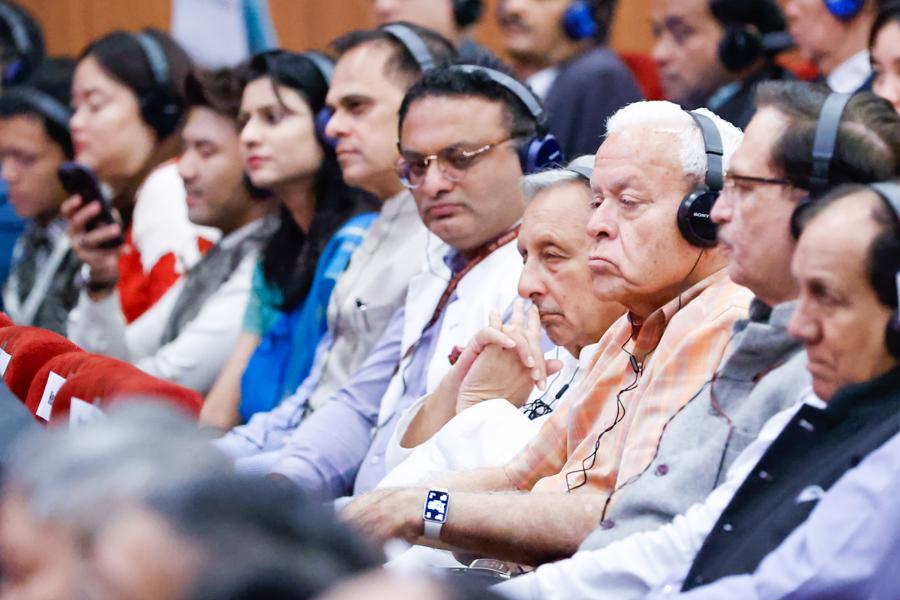
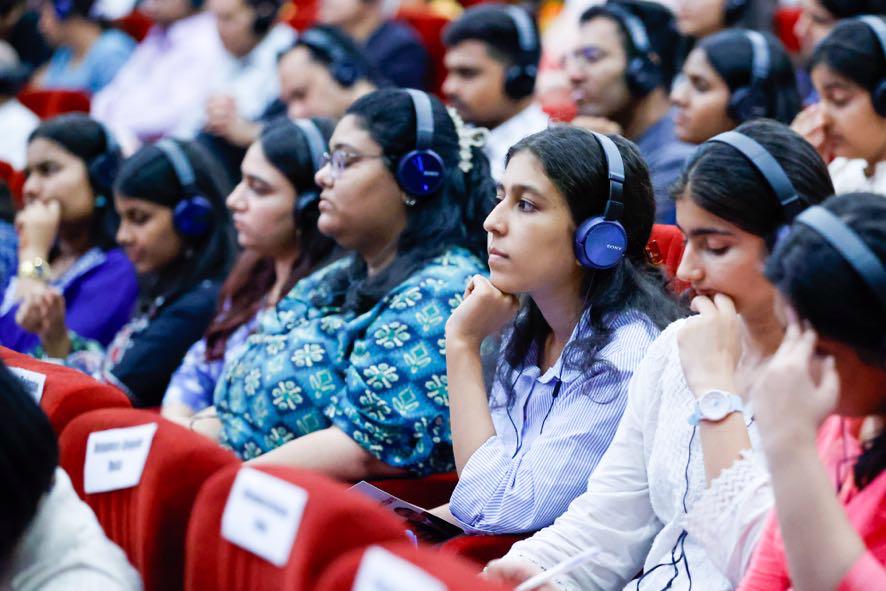
The event was attended by a large number of Indian delegates from various fields – Photo: VGP
Second, renew traditional growth drivers and promote new ones, propelling economic, trade, and investment cooperation to match the relationship’s potential and development space of the two countries. The two countries should soon consider negotiating a new economic and trade agreement, fostering collaboration in new technologies, core technologies, innovation, and high-quality human resource training. Vietnam hopes that India will undertake large-scale investment projects in key sectors, particularly infrastructure, aviation and maritime connectivity, energy, and oil and gas.
Third, strengthen multilateral cooperation, uphold international law, persistently promote dialogue, build trust, and enhance solidarity and mutual understanding among nations. As Mahatma Gandhi said, “There is no way to peace; peace is the way.”
“We will jointly promote the formation of a multipolar, multi-centered world order that is transparent, equal, and inclusive, with ASEAN playing a central role. We will also realize the vision of peace, stability, cooperation, and development in the oceans and seas, including the South China Sea, resolving disputes by peaceful means in accordance with international law, especially the 1982 United Nations Convention on the Law of the Sea. Vietnam will continue to strongly support India’s “Act East” policy, together elevating the voice and role of developing countries,” affirmed the Prime Minister.
Fourth, proactively contribute to addressing global challenges. Vietnam supports and will actively participate in the Coalition for Disaster Resilient Infrastructure (CDRI) and the International Solar Alliance (ISA), helping enhance the capacity of developing countries to respond to climate change and energy transition towards green, clean, sustainable, and stable energy sources. The two sides should also strengthen cooperation at the regional and global levels to ensure food security, energy security, and water security and effectively implement the Mekong-Ganga cooperation framework for the peace, stability, and sustainable development of the sub-regions and the entire region.
Fifth, together, promote cultural, educational, local connectivity, people-to-people exchanges, and tourism to become endogenous resources and driving forces for the sustainable development of both countries. The Prime Minister hopes that ICWA and other Indian research institutions and educational establishments will expand cooperation with their Vietnamese counterparts, enhancing research and academic exchanges in areas of mutual interest.
Concluding his speech, the Prime Minister emphasized that, building on the shared values of solidarity and friendship, along with the substantial cooperation outcomes over time, we firmly believe in the bright prospects of the bilateral relationship. The Vietnam-India relationship will continue to “blossom under the peaceful sky,” as President Ho Chi Minh envisioned during his first visit to India in 1958, contributing positively to peace, cooperation, and sustainable development in the Indo-Pacific region and the world.
On behalf of ICWA and the audience, the ICWA representative affirmed that Vietnam is an important pillar in India’s Act East Policy and a key partner in India’s Indo-Pacific vision. He expressed appreciation and high regard for the Prime Minister’s insightful and profound remarks on strengthening the Vietnam-India Comprehensive Strategic Partnership for peace, cooperation, and development in the Indo-Pacific region and the world.
The most extensive bribery case ever in Thanh Hoa: Numerous suspects prosecuted for “Giving and Receiving Bribes”
The Provincial Security Investigation Agency (PSIA) of Thanh Hoa province announced on January 31st that it has made the decision to initiate a prosecution against 23 individuals in connection with the offenses of “Accepting bribes” and “Giving bribes” as stipulated in Article 354(3) and Article 364(2) of the Criminal Code.
Vietnam’s Irresistible ‘Specialty’ That China Desperately Wants to Revive: Highly Popular from the US to Asia, Bringing in Millions of Dollars
Vietnam is one of the largest exporting countries in the world, along with China and the Philippines.

